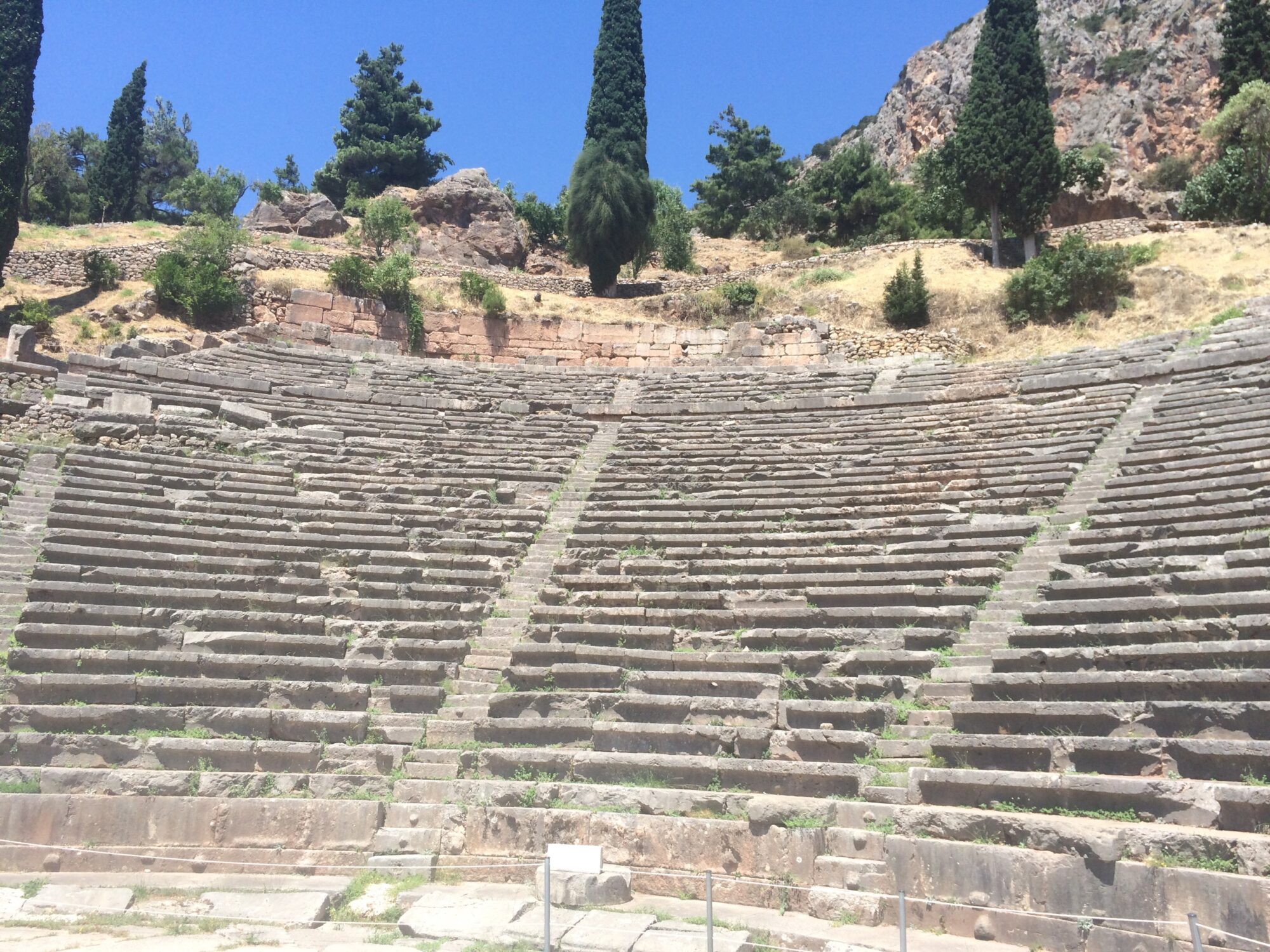Last week, my husband and I enjoyed a well-deserved vacation/5-years-late-honeymoon in Greece! Now, I made a personal promise that I would be completely in “vacation mode,” but I couldn’t help but stumble on some really interesting artifacts and learn a bit about ancient musical history.
One of our first ventures was a visit to the archaeological site of Delphi, which, to the Ancient Greeks, was considered the center (or naval) of the earth. Here, in Delphi, a temple was built for Apollo, the god of poetry, oracles, knowledge, and … music. It is quite a fascinating place to explore!
Below is a picture of a restored stone from the Treasury of the Athenians. This stone was inscribed with one of two hymns to Apollo. These Apollonian hymns, discovered in 1893, were written around 128 BC, and have since been translated and reconstructed into modernized musical notation. Fragments from the original stones are on permanent display in the Delphi museum.
It is no surprise to me that music was a large part of the ancient Greek culture. Music was used primarily as a source of entertainment, a way to educate others, and also as an offering or celebration to their gods … many of the same reasons why music remains significant in our modern culture. But, it amazes me the most to think that music was so important that the Greeks created a notational system, which allowed them to establish a written history of their music, adorn their buildings and temples with scores, and pass their works down through the generations. It was refreshing and inspiring for me to see, in person, that the appreciation for arts is so deeply rooted in early civilization.


